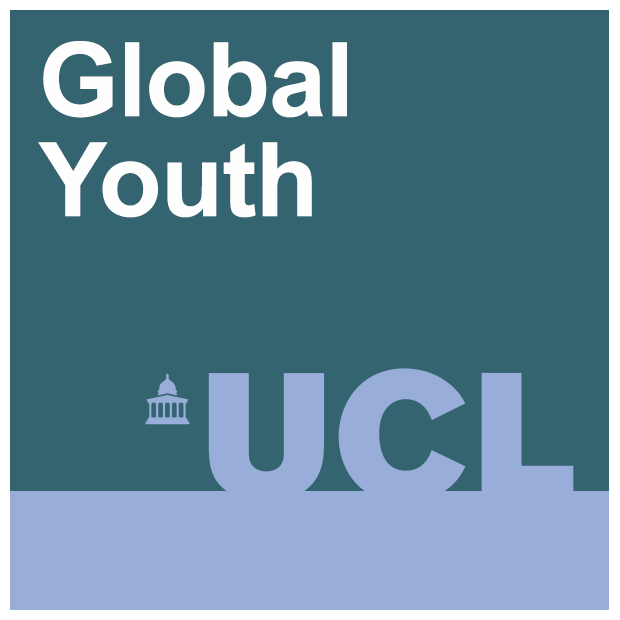Youth and music in the city – 24th November 2021
By UCL Global Youth, on 10 November 2021
To view a recording of this webinar, visit our Youtube channel.
The final webinar in our Youth and the City webinar series takes places on Wednesday, 24th November from 12 noon – 1pm (UK time). This webinar will focus on young people’s relationship with music.
To register for this event and receive a Zoom link for the webinar, visit our Eventbrite page. The webinars will also be recorded and later posted on the CGY YouTube channel for those who cannot attend during the live session.
Presentation 1: Hiphopography as urban cartography: Some notes on shared study
Dr Ethiraj Gabriel Dattatreyan, Goldsmiths, University of London
In this talk I draw from my experiences running rap/poetry workshops with court-involved youth in New York City – before I entered the world of academia – to illustrate the possibilities of hiphopography as an urban cartographic method that maps the relationships and distances produced by anti-Black state violence. In the late 1990s historian and hip hop scholar James Spady coined the term hiphopography to describe the kinds of biographical, ethnographic, and oral history approaches hip hop/Black Studies scholars utilise to challenge ideas of the ‘researcher and the ‘researched’ implicit in traditional ethnography. I mark the ways in which hiphopography can offer a critical and creative means to collaboratively study urban cartographies of marginalization and violence with young people through the production of sonic, visual, textual, and embodied forms of knowledge. These forms don’t necessarily need to be consumed by scholarly or hip hop publics as art or evidence. Rather, this material foregrounds hip hop’s artistic practice as a theoretically rich and relational engagement with the racialized conditions of possibility – what Fred Moten might call study – for youthful life in the city.
Author Biography: Ethiraj Gabriel Dattatreyan is a Senior Lecturer in the Department of Anthropology at Goldsmiths. He holds a joint PhD in education and socio-cultural anthropology from the University of Pennsylvania. His audio-visual and written research engages with the ways in which digital media consumption, production, and circulation shape understandings of migration, gender, race, and urban space.
Presentation 2: Scottish Hip-Hop? Challenging, interpreting and remaking youth culture(s) A short discussion about Scottish culture, hip-hop culture and the ways that local and global culture(s) interact.
Dr Dave Hook, Edinburgh Napier University
In this talk, I will discuss my own experiences of making and being involved in hip-hop in Scotland. This provides opportunities to ask questions about people’s preconceptions about both hip-hop culture and Scottish culture, examining youth stereotypes in both, and challenging ideas that elements of each may be incompatible. Using a combination of autoethnography, poetic analysis and cultural studies, evidence emerges demonstrating the combining of local culture(s), global culture(s) and the individual idiosyncratic, hybridising to create something new that can exist across cultural domains.
Biography: Dr Dave Hook is a Lecturer in Music at Edinburgh Napier University. A rapper, poet, song-writer and music producer, he lectures in a range of subjects including lyric writing and analysis, recording studio theory and practice, mastering techniques and music production. His research focuses on hip-hop, rap lyricism, identity, culture and performance, through creative practice.
Winner of Best Hip-Hop at the Scottish Alternative Music Awards 2018, he has toured extensively throughout the UK and around the globe both as the lyricist and principal songwriter with alternative hip-hop group Stanley Odd, and as solo artist, Solareye. Stanley Odd’s most recent album, ‘STAY ODD’ was shortlisted for Scottish Album of the Year 2021. His written poetry has been published in a range of publications including Gutter Magazine, Neu! Reekie!’s #UntitledTwo anthology, and Forty Voices Strong: An Anthology of Contemporary Scottish Poetry.
About the Youth and the City webinar series
This term the Centre for Global Youth is using its webinar series to explore the latest research on youth and cities. Over 6 weeks during October to November 2021, these 1-hour seminars will bring together a range of guest speakers to share new research and engage in dialogue about how young people use, relate to, challenge and remake urban spaces. Spanning research in cities from the Global North and South, session topics will include precarity, race, social class, activism, music, and youth voice. Contributors will draw on theories from sociology, human geography, anthropology, political science, and beyond. Overall, the aim of the program is to overcome silos of urban sociology, youth studies and allied fields, and encourage further conversations at critical intersections of youth and cities.
Organisational details: The series is co-ordinated by Avril Keating, Caroline Oliver, and Brett Lashua, UCL-IOE.
Privacy: For information about UCL’s privacy practices and how UCL uses your data, please see the UCL General Privacy Notice.
 Close
Close



